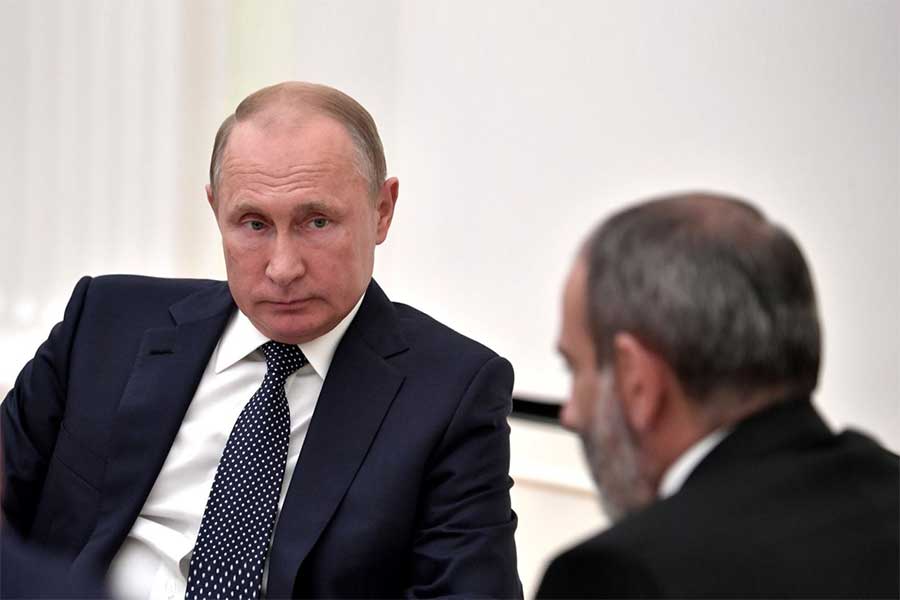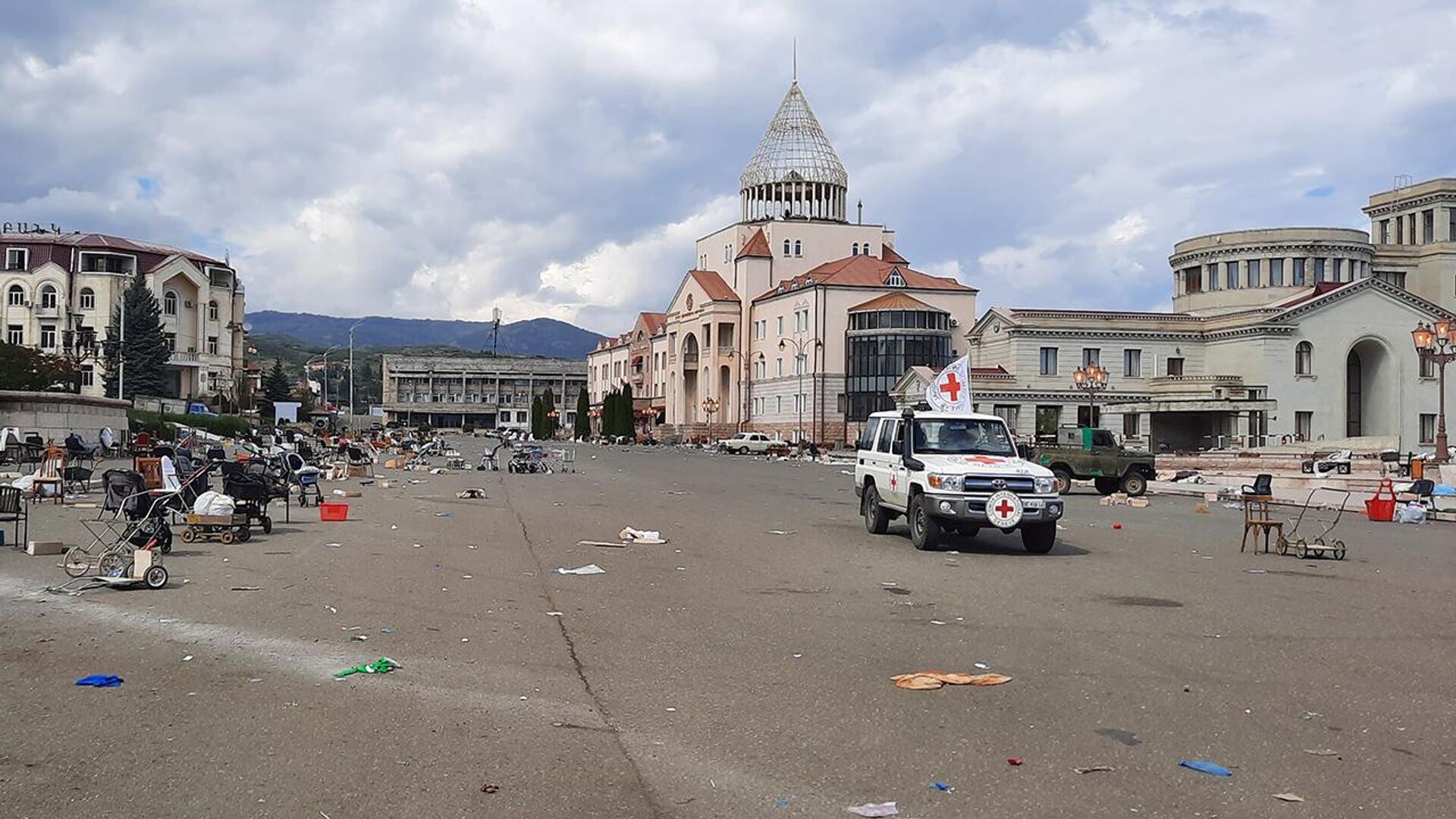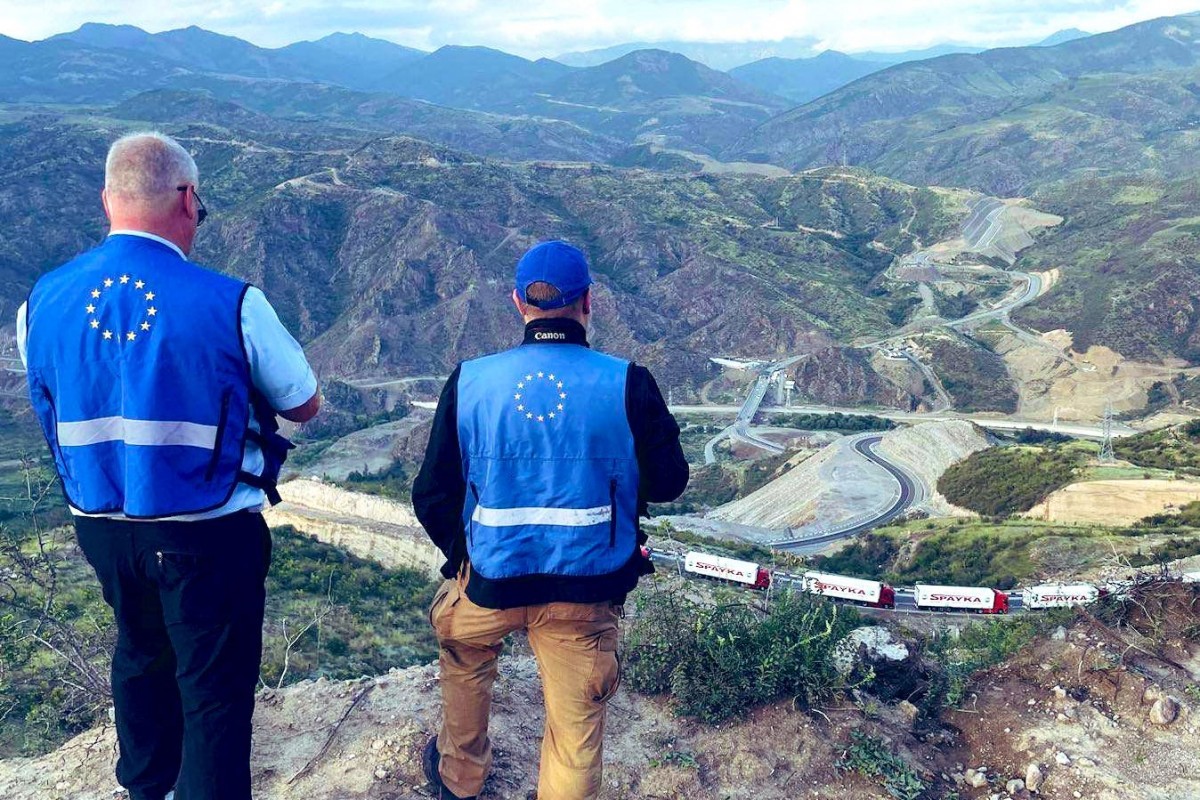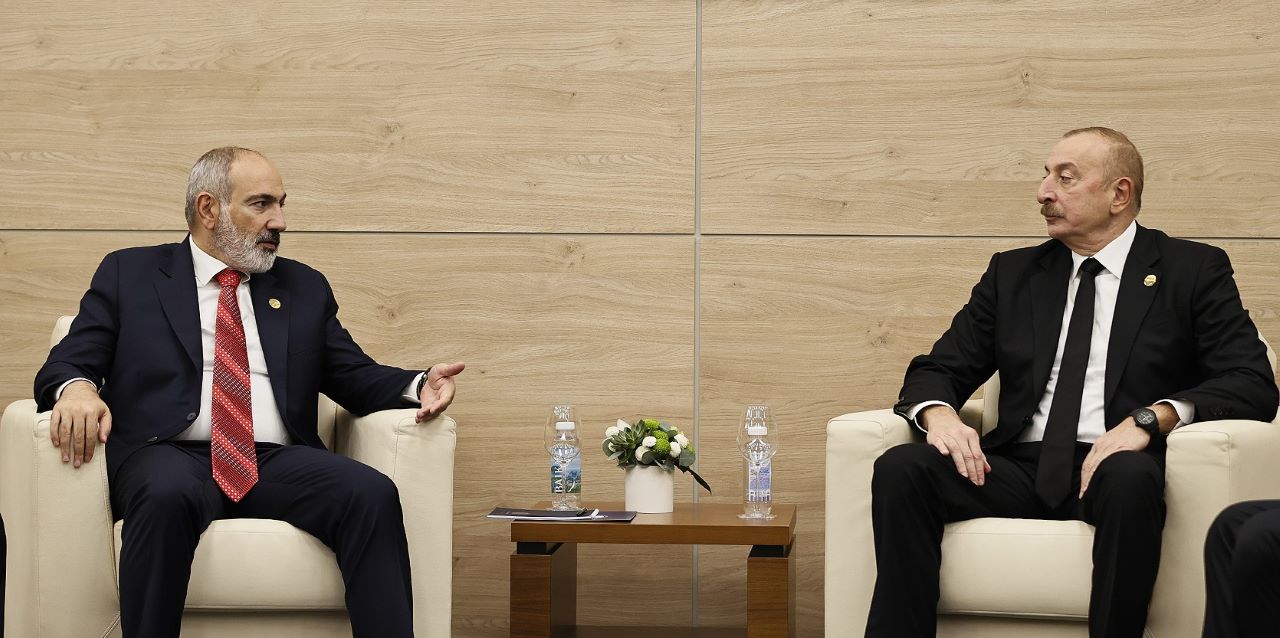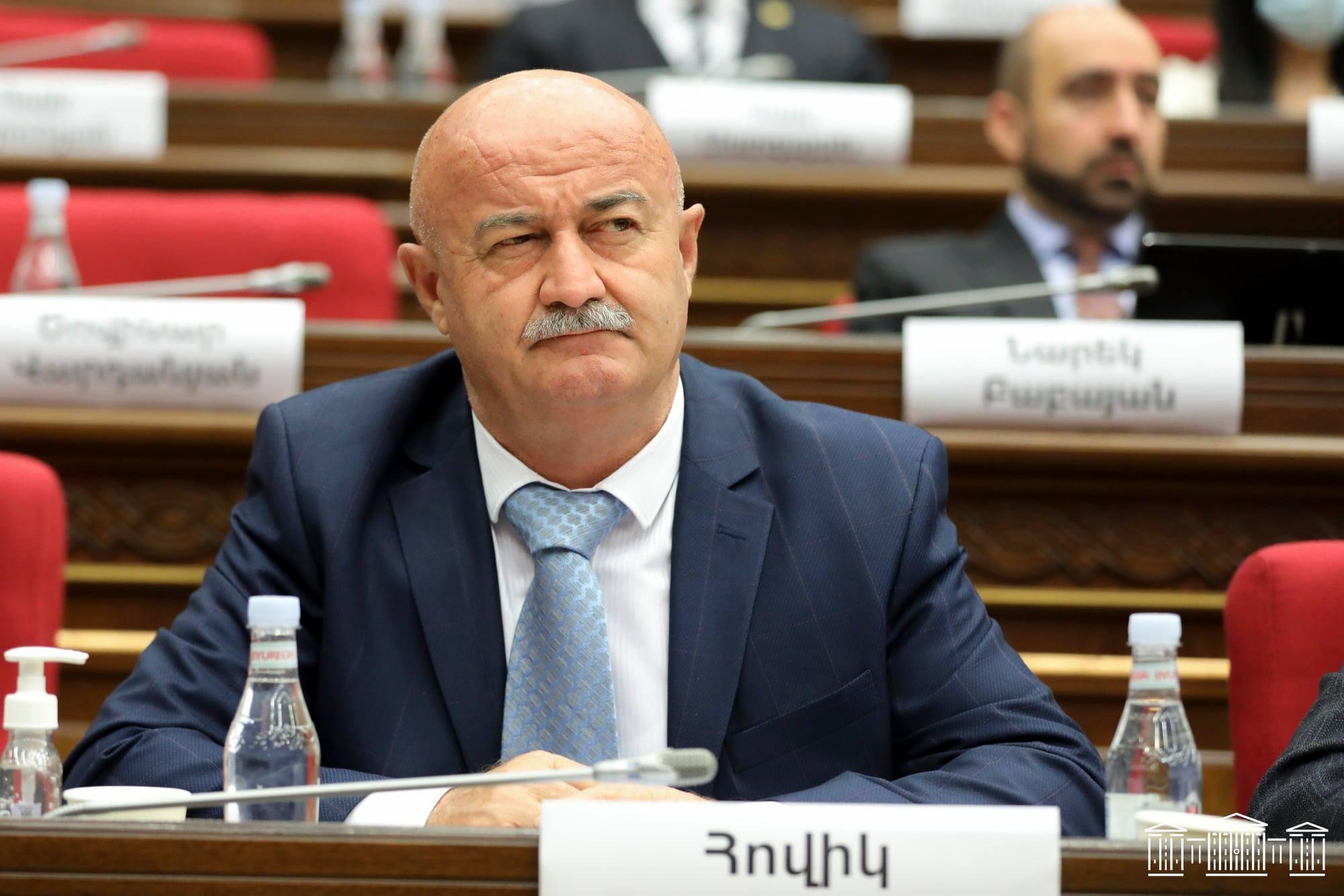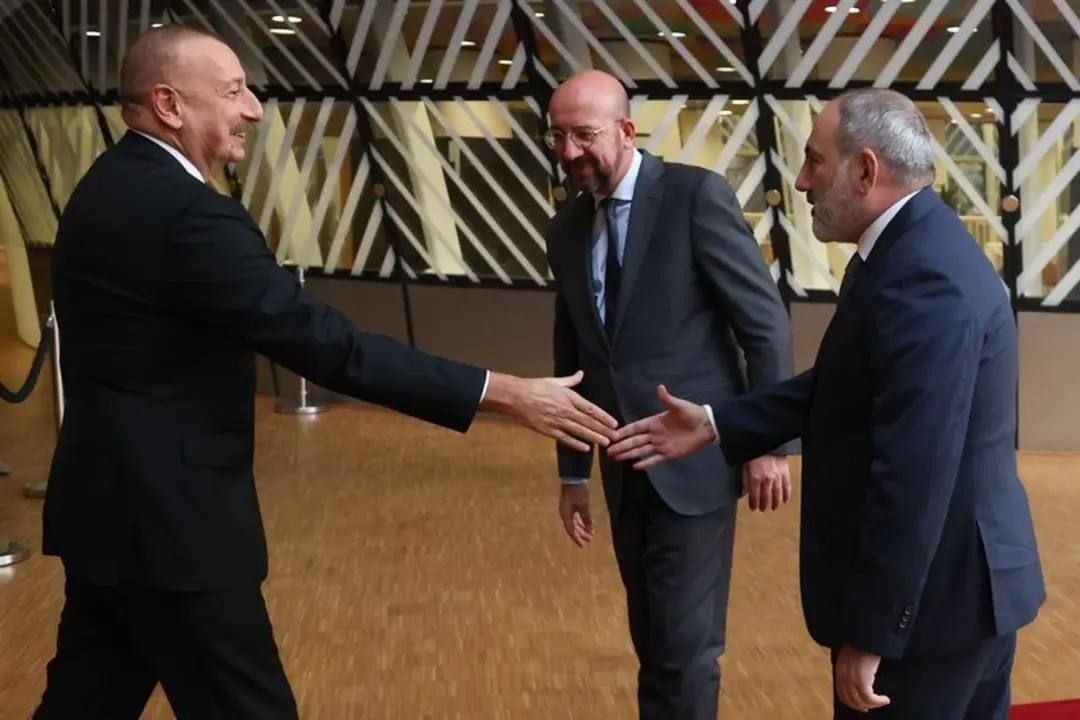Armenia in 2024: Choosing between Europe and Russia, skepticism, and fight for future
Key events in Armenia 2024
Compared to previous years, 2024 was relatively calm for Armenia—it passed without war. However, the country continued to grapple with the challenges faced by over 100,000 displaced compatriots from Nagorno-Karabakh, who were forced to resettle in Armenia in 2023 after losing their homes.
At the same time, this year was marked by difficult strategic decisions. It featured active steps toward European integration and stronger ties with Western partners, while also seeing efforts by Armenian authorities to reduce dependence on Russia.
A key event of the year was the Eurovote initiative by pro-Western political forces, advocating for a referendum on Armenia’s potential accession to the European Union. They collected signatures, with more than 50,000 Armenians supporting the initiative. The matter is now set to be discussed and decided by the country’s parliament.
Meanwhile, Armenia froze its participation in the CSTO, the Russian-led military alliance. The country’s leadership refused to engage in the bloc’s activities, despite dissatisfaction from Moscow. Such actions were unprecedented under previous Armenian governments.
What lies ahead for Armenia in the coming year? Will the country solidify its pro-Western course, or will Russia manage to draw it back into its orbit? There is clearly a growing desire for change within society. While some pro-Western citizens expect immediate transformation and demand decisive action from the authorities, others are skeptical of the ruling team’s sincerity and doubt the feasibility of practical steps in this direction.
- What could push Baku to sign peace agreement with Armenia?
- Russia says door open for Armenia’s return to CSTO
- Armenian EU membership referendum backers gather more signatures than required
Ovsep Khurshudyan, political analyst
Eurovote and path to the West
“One of the key events in Armenia in 2024 was the Eurovote initiative, which collected 60,000 signatures, 52,000 of which were verified. This enabled the submission of a draft law on Armenia’s European integration to Parliament.
In January, discussions on the draft law will begin in relevant committees. There is confidence it will be passed, as statements from government representatives and Prime Minister Nikol Pashinyan himself suggest no grounds for its rejection.
This would officially set Armenia on a course toward European integration, making it a priority in the country’s foreign policy. At a certain stage, Armenia will be required to formally apply for EU membership, which would involve signing an Association Agreement with the EU, as Ukraine, Moldova, and Georgia have done. Additionally, Armenia would need to exit the Russian-led CSTO, the Eurasian Economic Union, and the CIS, as EU membership is impossible without these steps. The key point is that the process has been initiated.
Another noteworthy event was the trilateral meeting between Nikol Pashinyan, European Commission President Ursula von der Leyen, and U.S. Secretary of State Antony Blinken on April 5, 2024, in Brussels. This meeting outlined cooperation priorities, including security, economic collaboration, and the implementation of democratic reforms.”
Armenia distances itself from Russia
“The Armenian authorities have taken significant steps to reduce the country’s dependence on Russia.
Notably, at the initiative of Armenia’s leadership, Russian border guards have vacated their posts along all sections of the Armenian-Azerbaijani border. These border units, instead of protecting Armenian borders, were serving Azerbaijan’s interests.
Russian border forces had been stationed in areas bordering Azerbaijan—Vayots Dzor, Tavush, Syunik, Gegharkunik, and Ararat—after the 44-day war in 2020. In May of this year, Pashinyan and Putin reached an agreement to withdraw these forces.
Let us recall the events of 2021, when Azerbaijan attacked Armenia’s sovereign territory near Sotk. Just before the attack, Russian units had left this area, leaving it unprotected. As a result, Azerbaijani forces occupied positions without resistance. If Russian troops had not been stationed there, Armenian soldiers might have been able to defend the border.
Furthermore, at the initiative of Armenian authorities, Russian border guards have also left Zvartnots Airport, where they previously controlled all passenger traffic. The airport is now entirely under Armenian control.
Russian border guards have also vacated the checkpoint in Meghri, on the state border with Iran.
Currently, Russian forces remain stationed on the Armenian-Turkish and Armenian-Iranian borders.
The Federal Security Service (FSB) of Russia guards Armenia’s state borders with Turkey and Iran based on an interstate agreement titled “On the Status of the Border Troops of the Russian Federation Stationed on the Territory of the Republic of Armenia and the Conditions of Their Activities.” This agreement was signed in 1992.
In 2024, an agreement was reached for joint border management as a temporary measure due to a lack of sufficiently trained Armenian border guards. However, in the future, the entire border will be guarded solely by local forces.
These rapid changes are laying the groundwork for closer integration between Armenia, the EU, and Western security systems.”
Military-technical cooperation
“One of the key events of the past year was Armenia’s military-technical cooperation with Western countries, including France, the United States, and several other European nations.
Joint military exercises between the U.S. and Armenian armed forces, named Eagle Partner 2024, took place. Armenian troops received training from American and French instructors.
Particularly noteworthy are the deliveries of military-technical and technological equipment to Armenia. In the case of France, this includes substantial arms shipments. These include air defense systems, anti-tank, anti-missile, and anti-personnel systems, which are of great importance for ensuring the country’s security.”
Year without losses
“2024 was the first year since the 2020 war that Armenia ended without losses—neither in personnel nor territory.
This progress is primarily attributed to Armenia’s strengthened cooperation with Western countries and its integration into Western security systems. The role of European observers on the Armenian-Azerbaijani border should be particularly emphasized in this context.”
Political concessions: Role of European observers
“The presence of European civilian observers on the border with Azerbaijan is an important factor for security. However, the Azerbaijani president’s demand for their withdrawal has caused discontent within Armenian society. Prime Minister Pashinyan, meanwhile, shows a degree of compliance on this issue, stating that EU mission patrols are unnecessary on demarcated sections of the border. At the same time, Armenian authorities doubt Azerbaijan’s readiness to promptly begin the border delimitation process. This suggests that European observers are likely to continue monitoring the situation for several years.
That said, making concessions on this matter is a questionable decision. Personally, I oppose such concessions. A demarcated border does not guarantee safety. Azerbaijan is known for its provocations, often framing its attacks as responses to alleged Armenian aggression. The presence of European observers hinders Baku’s ability to implement such scenarios, depriving it of opportunities to blame Armenia.
The withdrawal of observers could lead to a situation where, even after signing a peace treaty and delimiting the border, Azerbaijan continues its provocations. The absence of European oversight would increase the likelihood of such incidents and make them easier to justify.”
Criminals must be punished
“Another important and unresolved provision of the peace treaty with Azerbaijan is the mutual withdrawal of international lawsuits.
Armenia must not make concessions, especially considering the positive interim court rulings already in its favor. Crimes against humanity committed by the Azerbaijani side must be addressed. Impunity inevitably leads to new crimes.
Withdrawing the lawsuits would violate the rights of the Armenian population of Nagorno-Karabakh, as well as the rights of the heirs of victims of Azerbaijani crimes during the 2020 war and subsequent years.
It is absurd to agree to let those who killed prisoners of war and committed other atrocities remain free. This would set a dangerous precedent, encouraging further crimes. Such issues should not be subject to negotiation or bargaining.”
Anush Sedrakyan, political scientist
Substitution of concepts
“The key phenomenon in Armenia’s political life in 2024 has been a total substitution of concepts. Everything has been turned upside down. Our reality has become a paradox. Major events and statements that significantly affect the country’s future are presented as secondary matters.
Topics that could have defined the year—border insecurity, national security issues, the prospect of Azerbaijani settlement, possible constitutional changes, and upcoming elections—have been overshadowed by lowbrow shows and informational noise. This noise is deliberately created by the authorities through trivial narratives, family gatherings, personal visits, and, as a symbol, the prime minister’s bike rides.
This is an intentional approach. The human brain is wired to consume lighter, more entertaining information, relegating serious issues to the background. As a result, society finds itself in a state of informational anesthesia, flooded with semi-scandalous pseudo-news and incapable of actively resisting or influencing critical events.”
Two hands of same body
“Today’s authorities and opposition in Armenia effectively act in unison. It’s as if they are two hands of the same body, controlled by one head—Vladimir Putin. His influence is only growing stronger.
Loyalty to Russia’s political agenda is demonstrated not only by Armenia but also by other regional countries, such as Georgia and Azerbaijan.
The anti-Russian rhetoric of the Armenian authorities turns out to be nothing more than political posturing. Throughout Nikol Pashinyan’s tenure, none of his actions have dealt any real blow to Russia’s interests.
This situation risks turning Armenia into a ‘transit zone’ serving the interests of more determined states. The incompetence of Armenia’s leadership is already being successfully exploited by other countries, primarily Azerbaijan. Azerbaijan skillfully conducts its policies in coordination with Turkey, which has secured a dominant position in the region, even overshadowing Russia.”
Unpeaceful treaty
“Today, the directives of Armenia’s authorities are being shaped by Azerbaijan and Russia. We are being deprived of the opportunity to appeal to international courts, to address cases of ethnic cleansing in Artsakh, and to expose crimes against civilians. Statements like ‘the issue of genocide is not a priority in Armenia’s foreign policy’ [as stated by Foreign Minister Ararat Mirzoyan] and the possibility of withdrawing international lawsuits against Baku are no coincidence.
This is not a peace treaty but an act of capitulation, effectively handing Armenia over to a Russian-Turkish alliance, with Azerbaijan playing the role of overseer. This plan is being gradually implemented, and the current government is steering the situation toward its realization.”
Peaceful march Azerbaijan-style
“Ilham Aliyev consistently talks about the ‘300,000 Azerbaijanis’ who have already submitted applications and are planning to resettle in Armenia.
Do you understand what this will lead to? A similar precedent has already occurred. At one time, Palestinians, having despaired of breaking Israeli defenses, proposed a so-called ‘peaceful initiative’ known as the peaceful march to massively settle Israeli territory. Naturally, Israel refused, stating that the Palestinians, having failed to achieve their goals militarily, were now attempting to settle peacefully.
In our case, the situation is the opposite. Anyone who dares to oppose such a scenario is instantly marginalized. These individuals are labeled as racists, fascists, and nationalists. The authorities actively use all available tools to suppress any ideological or physical resistance.”
New opposition needed
“In the current circumstances, Pashinyan can easily retain power, as the opposition actively helps him do so with their presence, meaningless statements, rallies, and demonstrations. Meanwhile, the prime minister delivers grand speeches in the West, declaring that peaceful processes are underway in Armenia and that we treat our opposition very democratically. And what can be done if the opposition fails to gather the necessary votes?
We are stuck in this quagmire and will remain here until a new, healthy opposition with a clear, Western-oriented agenda emerges.
Armenia must openly acknowledge this, understanding that all pro-Russian alliances inevitably end in complete failure. A vivid example of this is the Karabakh conflict.”
Protest leader sacrificed
“Archbishop Bagrat Galstanyan, who led the protest movement aimed at changing the government, was sacrificed. I am certain that he began his struggle with the best of intentions, unaware of how he was being manipulated. Russia, through either the Armenian opposition or the authorities, played a cruel trick on him. This resulted in the worst outcome—nationwide apathy and the belief that nothing can be changed.
The Tavush for the Homeland movement began a march from the Tavush region to Yerevan on May 4, protesting the delimitation process with Azerbaijan in northern Armenia. The movement was led by the head of the Tavush Diocese, Archbishop Bagrat Galstanyan. The participants arrived in Yerevan on May 9. By then, their initial goal of stopping the delimitation process had shifted to demanding the resignation of the prime minister. The movement failed to gain public support.
Currently, the church, education, and history are under attack in Armenia. These areas have become the targets of ideological subversion with the sole aim of depriving the people of common interests, common enemies, and shared ideas. I do not wish to demonize Russian politics, but they do not even try to hide their intentions.
Fortunately, people’s attitude toward the church has not changed.”
Mockery of European integration
“Eurovote is essentially a mockery of European integration, orchestrated by Nikol Pashinyan. Otherwise, this entire ‘pro-Western opposition’ would have demanded he implement a Western agenda and would have posed specific questions to him. But they have no such demands and are not fighting for a pro-Western orientation.
Look at what the pro-Western opposition is doing in Georgia or how it acted in Ukraine. Look at what happened with Zelensky, with Saakashvili, and how comfortably Nikol Pashinyan reigns.
Eurovote is a gimmick designed to secure parliamentary seats for Pashinyan-aligned opposition under the guise of a pro-Western agenda—nothing more.”











